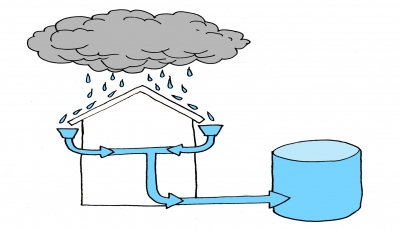Comprehending the Effect of Reclaim Waste Melbourne on Your Industrial Waste Management
Comprehending the Effect of Reclaim Waste Melbourne on Your Industrial Waste Management
Blog Article
Enhancing Environmental Sustainability With Strategic Liquid Waste Elimination Solutions
In the world of ecological sustainability, the effective administration of fluid waste stands as a critical focal point in maintaining our environments and securing public wellness. Let us get started on a trip to reveal the transformative capacity of critical fluid waste monitoring practices in boosting environmental sustainability.
Relevance of Fluid Waste Management

Among the vital reasons why liquid waste administration is crucial is its direct effect on public wellness. Untreated or improperly treated fluid waste can have harmful microorganisms and chemicals that present significant health risks to neighborhoods. Polluted water resources can cause waterborne conditions, affecting both human health and wellness and environments. Correct monitoring of fluid waste helps avoid these health and wellness dangers and makes sure the health of the populace.

Challenges in Fluid Garbage Disposal
Given the essential value of correct liquid waste administration in guarding public health and ecological well-being, it is critical to deal with the many challenges connected with fluid garbage disposal techniques. One significant difficulty is the absence of ample infrastructure for the collection, treatment, and disposal of liquid waste. Lots of areas, specifically in developing countries, battle with inadequate centers and sources to handle the enhancing volume of liquid waste produced. This causes incorrect disposal approaches such as dumping in water bodies or unauthorized landfills, positioning severe wellness threats and ecological pollution.
Another challenge is the presence of unsafe materials in fluid waste, including chemicals, hefty steels, and microorganisms. Appropriate recognition and treatment of these unsafe components need specialized knowledge and tools, which might not always be readily offered. Furthermore, the cost of implementing secure disposal methods can be excessive for some sectors and communities, causing more and non-compliance environmental damages.
Sustainable Fluid Waste Solutions
Amidst the pressing demand for reliable fluid waste management methods, the imperative of sustainable options arises as an extremely important concern for environmental preservation and public health and wellness. Lasting fluid waste remedies encompass a range of innovative innovations and techniques intended at reducing the environmental effect of waste disposal.
In addition, lasting fluid waste options focus on the preservation of water sources with the application of water recycling and reuse techniques. By dealing with and repurposing wastewater for non-potable applications like watering or industrial processes, these solutions add to water conservation efforts and decrease the stress on freshwater resources. Generally, the assimilation of lasting liquid waste options not just sustains environmental sustainability but also fosters a healthier and more resilient culture for future generations.
Advantages of Strategic Elimination Practices
Tactically applied removal techniques play an important duty in optimizing liquid waste my latest blog post monitoring systems for environmental sustainability and public health and wellness defense. By adopting calculated elimination practices, organizations can substantially reduce the environmental effect of fluid waste disposal.
Additionally, these methods advertise resource healing by enabling the extraction of useful materials from liquid waste streams. This not just lowers the reliance on virgin resources however additionally sustains the circular economy principles of reuse and recycling. Additionally, calculated elimination methods can boost operational effectiveness and cost-effectiveness by improving waste monitoring processes and enhancing source allocation. In general, the advantages of strategic removal practices expand past environmental sustainability to pop over here encompass financial benefits and enhanced public health results.
Executing Effective Ecological Methods
Efficient implementation of ecological methods is vital in achieving sustainable fluid waste administration practices. To start with, business should conduct detailed environmental assessments to recognize prospective threats and influences connected with their fluid waste disposal processes. By recognizing the environmental effects of their operations, companies can establish targeted methods to reduce injury to ecological communities and public health and wellness.
Furthermore, carrying out effective ecological strategies entails setting clear objectives and objectives for fluid waste management - Industrial waste water treatment. These goals must be specific, quantifiable, attainable, appropriate, and time-bound (CLEVER) to guarantee liability and track progress in the direction of sustainability targets. Firms can also take advantage of modern technology and development to maximize fluid waste treatment procedures, lower resource usage, and boost total effectiveness
Partnership with governing agencies, stakeholders, and environmental professionals is an additional key aspect of successful method execution. By engaging with external partners, companies can obtain valuable insights, gain access to resources, and make sure conformity with ecological laws and regulations. In general, a critical and aggressive approach to environmental management is vital her explanation for alleviating ecological threats and advertising lasting sustainability in fluid waste elimination methods.
Verdict
In verdict, critical fluid waste elimination options play a crucial role in boosting ecological sustainability. By addressing the obstacles in fluid garbage disposal and carrying out sustainable methods, we can decrease the negative impact on the environment - Reclaim Waste. It is very important to prioritize reliable ecological methods to guarantee the long-term health and health of our earth
By carrying out efficient waste management practices, such as correct collection, therapy, and disposal techniques, the risks linked with fluid waste can be considerably reduced.
Offered the important significance of proper fluid waste administration in safeguarding public wellness and environmental wellness, it is important to address the many challenges linked with fluid waste disposal practices. Lasting liquid waste solutions incorporate a variety of innovative modern technologies and practices intended at decreasing the ecological effect of waste disposal.Strategically carried out removal techniques play a vital role in maximizing liquid waste monitoring systems for environmental sustainability and public wellness protection. On the whole, a tactical and aggressive approach to ecological management is crucial for reducing ecological risks and advertising lasting sustainability in liquid waste removal techniques.
Report this page